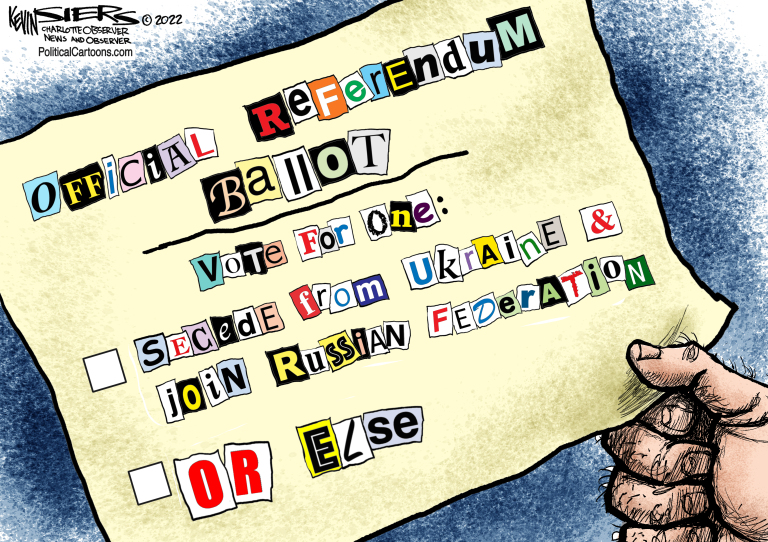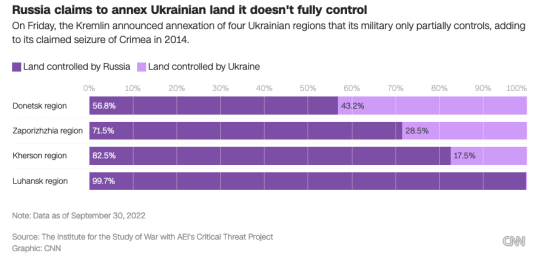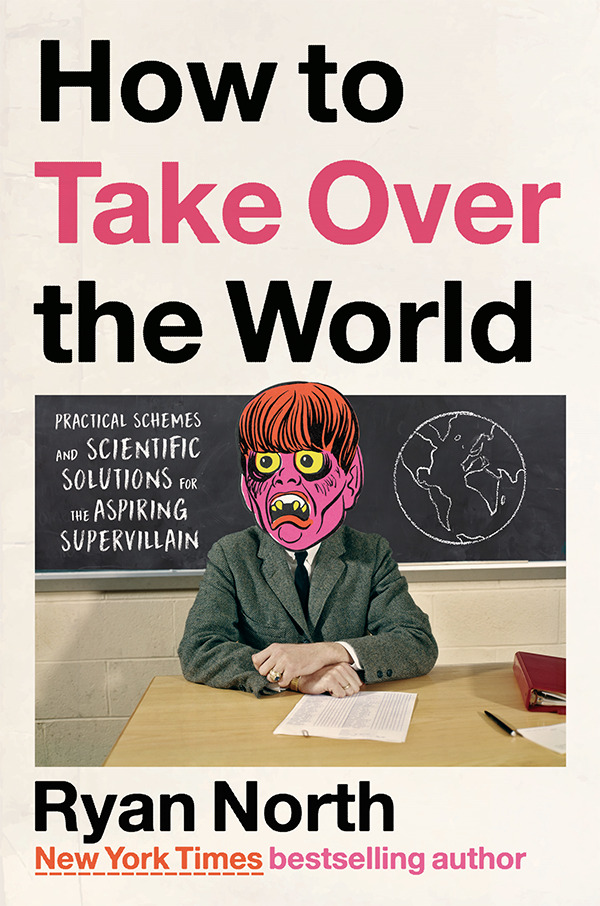No Sift next week. The next new articles will post on November 7.
The greatest way to defend democracy is to make it work.
This week's featured posts are three separate closing arguments for (1) why you should vote, and (2) why you should vote for Democrats. "Closing argument: Democracy", "Closing argument: Abortion", and "Closing argument: Biden's accomplishments".
This week everybody was talking about the midterm elections

Since I won't be blogging next Monday, I decided to post my closing arguments today. (Otherwise they'd appear the day before the election, which seems too late to convince anybody.) I encourage you to send these links to anybody you think needs to see them.
and the UK
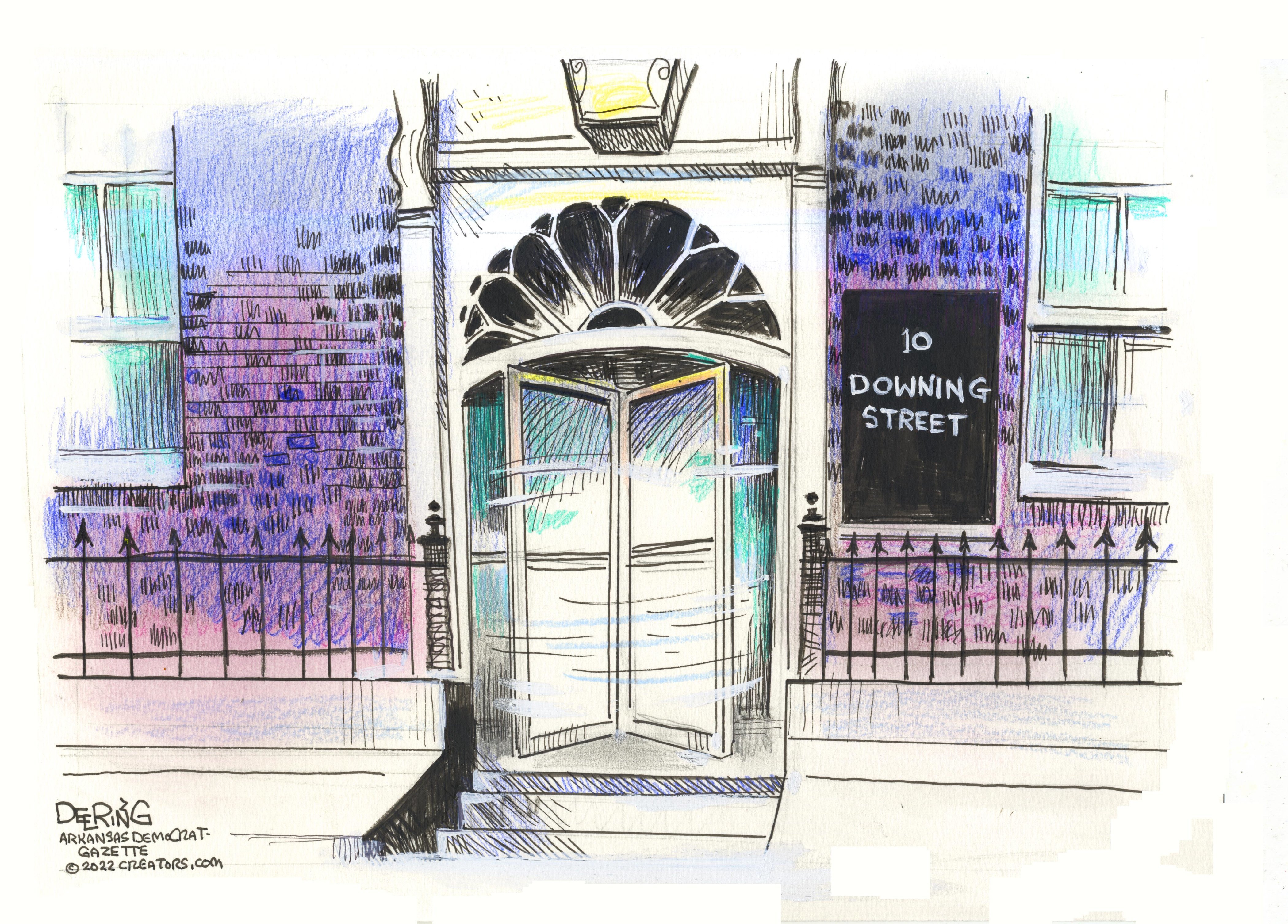
Liz Truss' reign as prime minister is over after about six weeks. She's the third PM in a row to have a short tenure: David Cameron served a respectable six years before leaving in 2016 after the Brexit referendum. He was replaced by Theresa May, who resigned in 2019 because she couldn't get a Brexit agreement negotiated and approved. Boris Johnson lasted for three chaotic years before resigning in scandal in July, but not actually leaving office until September.
Truss came into office promoting a big tax-cuts-for-the-rich plan that was (1) deeply unpopular with voters and (2) spooked the capital markets, sending the pound plunging. (For what it's worth, Trump economic advisor Larry Kudlow loved it, and claimed Truss' plan looked just like what Kevin McCarthy wants to do if he becomes Speaker.)
Now she's resigned too, and it looks like Rishi Sunak is going to replace her.
The Conservative Party (home of everybody I've mentioned so far) still has a majority in Parliament and doesn't have to hold new elections until 2024. But its polls have crashed and there's general acclaim for holding elections sooner, which is a thing that can happen in the British system. We'll see.
As for what this is all about, Vox interviews Johns Hopkins Professor Matthias Matthijs, who claims these years of instability trace back to Brexit.
There is one clear root cause of Britain’s woes, according to Matthijs: Brexit. The vote to Leave or Remain in the EU, he says, scrambled UK partisan affiliations and created new, polarized political identities around one dominant issue. The decision to leave unleashed serious economic aftershocks, which were impossible to ignore or paper over indefinitely. The result has been a chaotic, unsteady Britain, battling social malaise and political upheaval in the aftermath of the pandemic and amid an inflation crisis sweeping the global economy.
and Trump legal notices

Trump is facing so many legal challenges these days that you really can't tell the players without a program. This summary of the week's events may be incomplete.
Friday, the January 6 committee subpoenaed Trump. The subpoena says:
[W]e have assembled overwhelming evidence ... that you personally orchestrated and oversaw a multi-part effort to overturn the 2020 presidential election and to obstruct the peaceful transfer of power. ... Because of your central role in each element of these actions, the Select Committee unanimously directed the issuance of a subpoena seeking your testimony and relevant documents in your possession.
No doubt he'll run out the clock until the committee dissolves at the end of the year. But that will make him look weak and cowardly compared to Hillary Clinton, who faced the Republican Benghazi Committee for 11 hours and ate their lunch.
Wednesday, Trump gave a deposition under oath in the civil suit where E. Jean Carroll is charging him with defamation. In a memoir she published in 2019, Carroll claimed Trump had raped her in a department store dressing room in the mid-1990s. Trump told reporters that she was "totally lying" and that he never knew her, a claim that became suspicious when The Cut published a picture of them (with spouses) talking at a party in 1987. Trump managed to delay his deposition for years, but he finally had to do it. (The deposition isn't public, so I don't really know, but my bet is that he sounded like a dementia patient, and just kept repeating "I don't remember." That's how his written testimony in the Mueller investigation was.)
The Trump Organization's trial for tax fraud starts today. The case is related to the charges for which CFO Allen Weisselberg has already pleaded guilty. Trump himself has not been indicted.
Also on Wednesday, a federal judge ruled that Trump lawyer John Eastman (the guy who came up with the Mike-Pence-can-decide-the-presidency theory) has to turn a number of Trump-related emails over to the January 6 committee. Eastman had claimed attorney/client privilege, but the judge invoked the crime/fraud exception to that privilege. The judge's order says:
The emails show that President Trump knew that the specific numbers of voter fraud were wrong but continued to tout those numbers, both in court and to the public. The Court finds that these emails are sufficiently related to and in furtherance of a conspiracy to defraud the United States.
The special master reviewing the non-classified documents the FBI seized in their search of Mar-a-Lago -- the one Trump nominated himself -- is getting impatient with some of Trump's bizarre claims, like that a document can be personal, and yet also subject to executive privilege. Trump has never grasped that president was a role he played; it did not adhere to his person.
Meanwhile, WaPo reported this:
At least one of the documents seized by the FBI describes Iran’s missile program, according to these people, who spoke on the condition of anonymity to describe an ongoing investigation. Other documents described highly sensitive intelligence work aimed at China, they said.
Unauthorized disclosures of specific information in the documents would pose multiple risks, experts say. People aiding U.S. intelligence efforts could be endangered, and collection methods could be compromised. In addition, other countries or U.S. adversaries could retaliate against the United States for actions it has taken in secret.
Clearly, nothing to worry about.
Lindsey Graham appealed to the Supreme Court in a last-ditch attempt to get out of testifying to the Fulton County, Georgia grand jury about his possible interference in the 2020 election. I've got to wonder what question he is afraid to answer under oath, that it's worth going to this much trouble.
Friday, Steve Bannon was sentenced to four months in prison for contempt of Congress. He defied a subpoena from the January 6 committee similar to the one Trump got. (Again: What question is he afraid of?) His sentence won't begin until his appeals are exhausted, but he's going to jail eventually, because this case is really really simple: He got a legal subpoena and he didn't show up.
Meanwhile, his completely unrelated fraud trial should start in November.
and John Durham's final whimper
The Durham investigation was supposed to uncover some huge anti-Trump plot inside the Deep State, and demonstrate that the Trump/Russia investigation was based on politics rather than evidence. Trump promised it would uncover "the crime of the century", and claimed Durham was "coming up with things far bigger than anybody thought possible".
But as so often happens with Trump's claims, when it's time to produce evidence they come up short. It happened again in the Igor Danchenko case, which concluded Tuesday with an acquittal. The jury deliberated for only nine hours, and a juror quoted by the Washington Post said there were "no holdouts".
As in the Sussman case, the only other Durham indictment that went to trial, the charge was that someone lied to the FBI, not that the FBI investigation itself was corrupt or ill-founded. And even that small claim could not be proved to a jury. Danchenko's lawyer said:
If this trial has proven anything, it’s that the special counsel’s investigation was focused on proving crimes at any cost as opposed to investigating whether any occurred
Charlie Savage and Linda Qiu of the NYT point out that Durham applied very different standards when he was investigating CIA torture during the Bush administration.
At the time, Mr. Durham had set a high bar for charges and for releasing information related to the investigation. Throughout his 2008-2012 investigation, he found no one he deemed worthy of indictment even though two detainees had died in the C.I.A.’s custody, and he fought a Freedom of Information Act lawsuit to avoid disclosing to the public his findings and witness interview records.
Durham's grand jury has expired with no other indictments outstanding, so this looks like the end of the line for his long, expensive, and unproductive investigation. He'll produce a report that will probably make his master happy by rehashing all the conspiracy theories he did not prove. But in the end "the crime of the century" has resulted in two acquittals, one minor guilty plea, and no one going to jail.
and you also might be interested in ...
Last Monday, WaPo revealed one more way that the Trump Organization had scammed the government: Family members with Secret Service protection stayed in Trump hotels, which then overcharged the agents who protected them.
The records show that in 40 cases the Trump Organization billed the Secret Service far higher amounts than the approved government rate — in one case charging agents $1,185 a night to stay at the Trump International Hotel in D.C. The new billing documents, according to a congressional committee’s review, show that U.S. taxpayers paid the president’s company at least $1.4 million for Secret Service agents’ stays at Trump properties for his and his family’s protection.
That $1,185 was five times the government rate, and the $1.4 million doesn't include payments to Trump's Mar-a-Lago or Bedminster properties, which he frequently visited as president.
Eric Trump's previous claims that agents got discounted rates or stayed "free", and that the government "saved a fortune", appear to be lies.
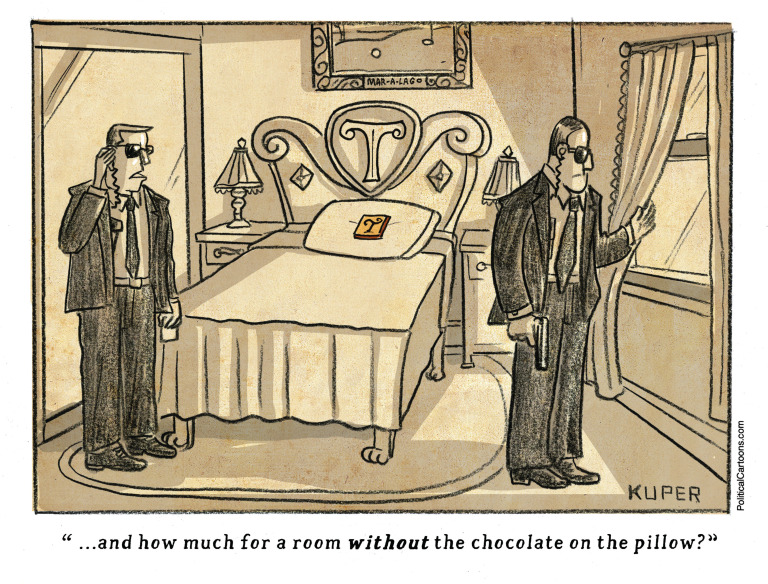
Back in August, Florida Governor Ron DeSantis announced with great fanfare that his new Election Crimes Office had arrested 20 Floridians who had voted illegally in 2020. This was seen on the Right as evidence that voter fraud is rampant and that more states should have their own ECOs.
From the beginning, though, the cases seemed a bit off. The 20 were all people who had been in prison, and who believed (incorrectly, it turned out) that the 2018 referendum returning felon voting rights applied to them. So they registered, were sent voter cards by local election officials, and then voted.
Since the 20 were confused and the government itself erred by approving their registrations, simply revoking those registrations seems like an adequate response. But instead the ECO charged them with a third-degree felony punishable by up to five years in prison. (The point seems to be to terrorize people who aren't sure about their eligibility. It's a voter-suppression tactic.)
Friday, the first case came to court, and the charges were dismissed because the state prosecutors have no jurisdiction.
Statewide prosecutors, which are an extension of the Attorney General's office, are prosecuting all of the election fraud cases that were brought in August. In order for the statewide prosecutor to have jurisdiction, the crimes alleged must have occurred in at least two judicial circuits.
The judge agreed with the defense's argument that the alleged violations, applying to vote and voting while ineligible, only occurred in Miami-Dade County. Thus, the statewide prosecutor was found to not have jurisdiction.
Statewide prosecutors argued that the alleged crimes were committed in Leon County in addition to Miami-Dade County, because the defendants' applications and votes were later transmitted to the Department of State in Tallahassee.
In other words, this whole story is yet another DeSantis stunt that got him headlines without accomplishing anything other than harassing some powerless people. If there is in fact a vast conspiracy of illegal voters, Florida still has not uncovered it.
Ten years ago, Rick Perlstein (author of all those history-of-the-conservative-movement books like Nixonland and Reaganland) explored the connection between conservative politics and hucksterism in "The Long Con". It turns out that if you're selling something of no particular value, a mailing list of conservative donors is a gold mine, because the conservative movement is a self-selected group of people who are easily fooled.
I mean, if you believe that 1-6 was an antifa plot or Trump is God's anointed, the sky's pretty much the limit, isn't it?
Updating Perlstein's points a little, Alex Jones makes his money selling overpriced dietary supplements, and Tucker Carlson's show is sponsored by dubious products that promise to treat your diabetes or get rid of your toe fungus, made by companies that frequently get in trouble with the FDA. (If you needed to sell such products, where would you look for suckers? That communist FDA -- it's constantly tying creative entrepreneurs in red tape and keeping you from using products that work. Am I right?)

But this week we got an even more striking example of the pattern. A right-wing blogger known as Vox Day has been raising money to make a right-wing superhero movie based on the conservative-themed comic-book character Rebel, whose Wonder-Woman-like costume includes the Confederate battle flag's X of stars across her face and chest. The script, written by Day and Chuck Dixon, has her battling "a global police force hunting down freethinking conservatives".
A plot ripped right out of today's headlines, don't you think?
Day claims to have raised $1 million, which he put in escrow in hopes of leveraging it into enough financing to make the film (which is already listed on IMDB and had a trailer on Vimeo until ... well, we'll get to that).
To hold the money, Theodore Beale (Vox Day's real-life alter ego) turned to cryptocurrency billionaire James Wolfgramm, whose firm Ohana Capital Finance promises "banking to the unbankable".
And guess what? The million dollars is gone, and it turns out Wolfgramm wasn't really a billionaire at all. So (sorry, early investors) there's not going to be a movie. Who (other than Rick Perlstein) could have imagined?
But don't worry, Beale is not discouraged and is already working on a new project. I'm sure you'll be hearing from him soon.
and let's close with something super, sort of
This week I ran across The Mediocre Superheroes, an online comic strip that I find hilarious. There's an article about it here, or you could just browse.
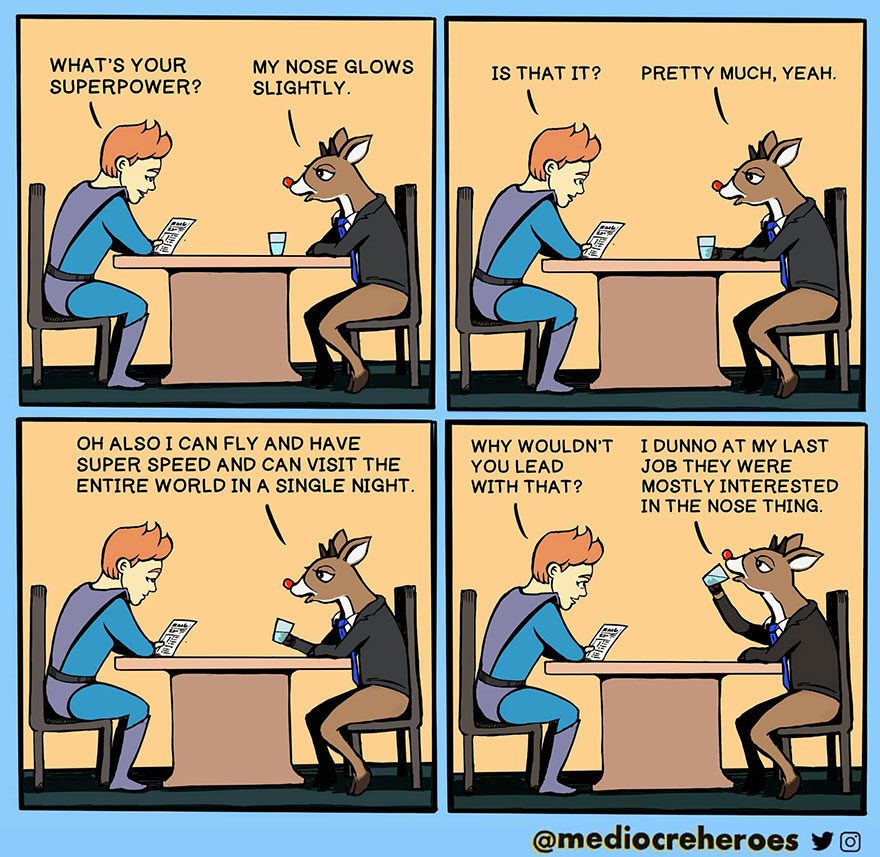

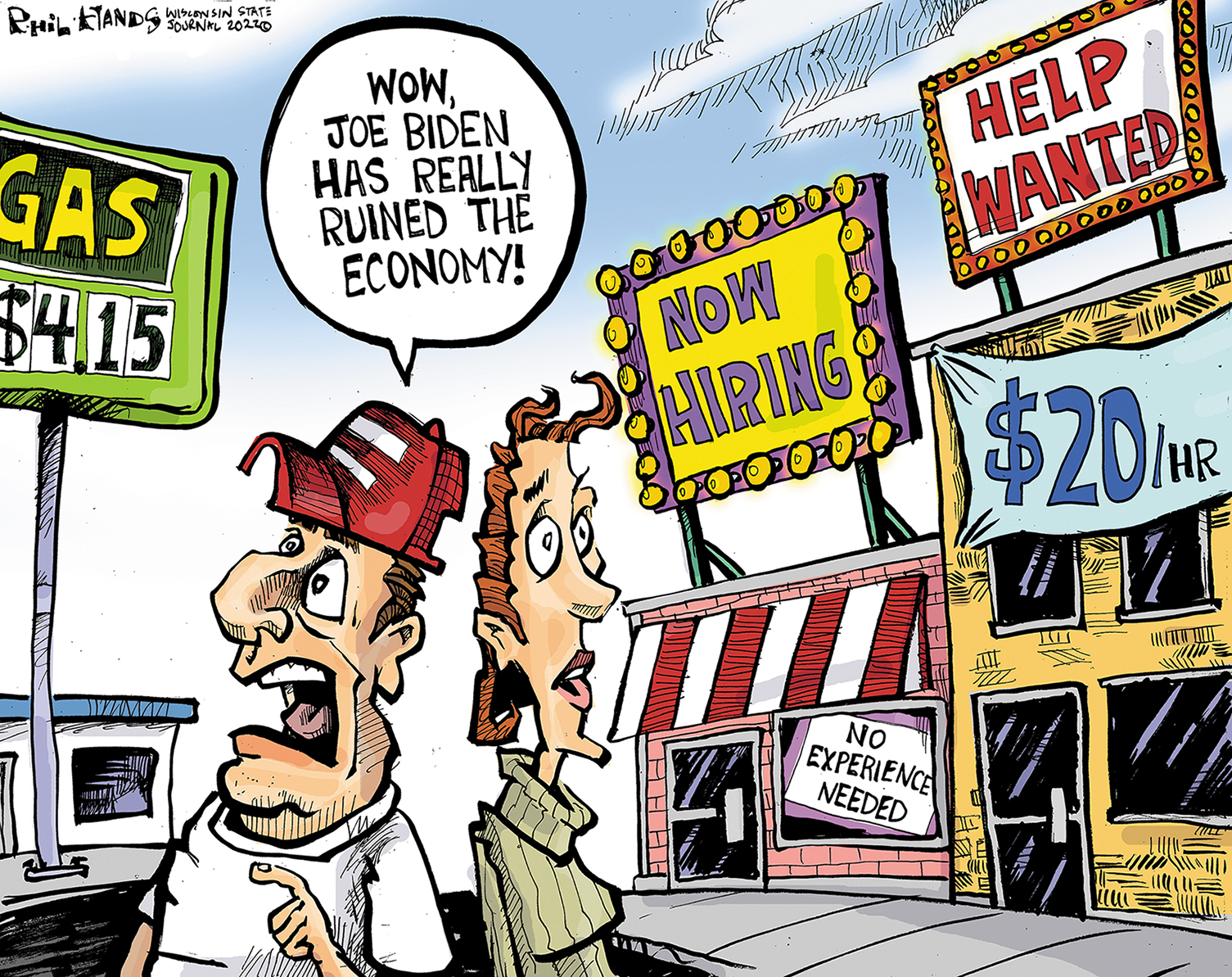

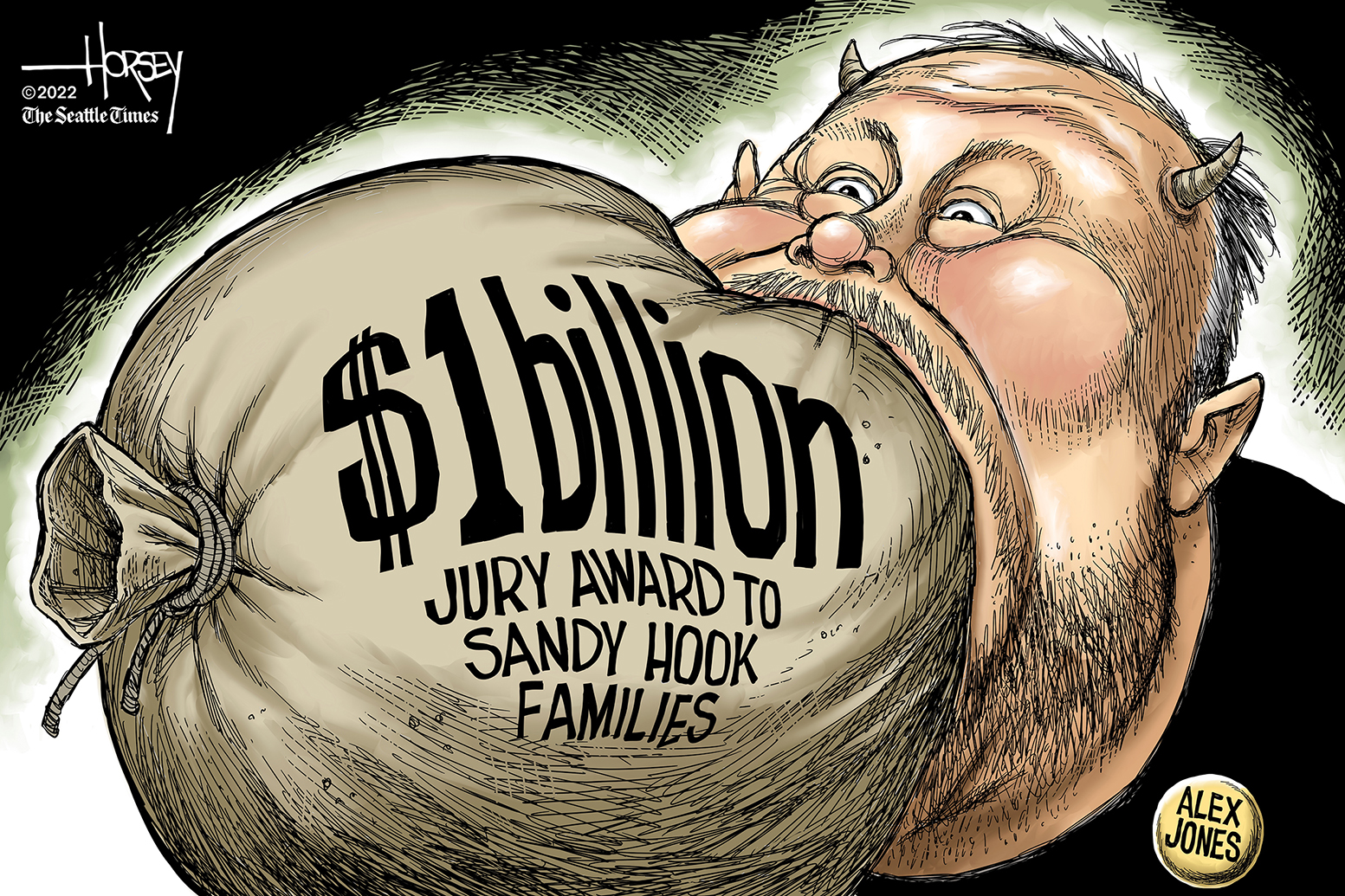
/https://tf-cmsv2-smithsonianmag-media.s3.amazonaws.com/filer/15/aa/15aae2ce-ec43-4f7e-8135-9897d66ebf97/figure3.jpg)




